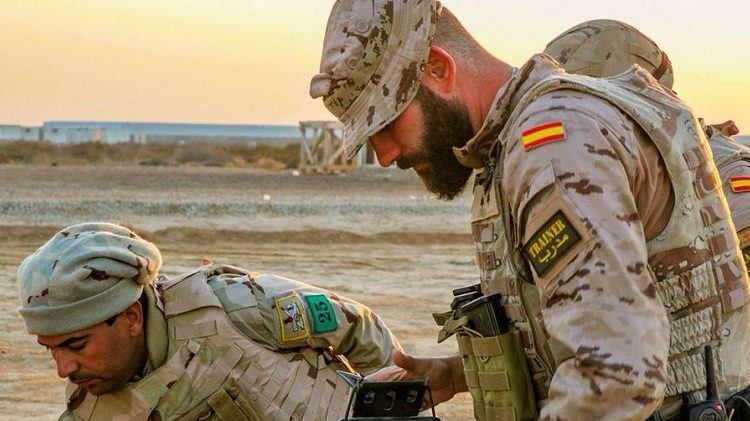Eduardo González
The People’s Parliamentary Group has proposed a reform of the Organic Law of National Defense of 2005 to strengthen parliamentary control both of the sending of troops abroad “that are not directly related to the defense of Spain or the national interest” and of shipments of military material in a war zone.
On June 25, the PP presented a Proposal for an Organic Law regarding the reform of the Organic Law of National Defense (of November 17, 2005) “for sending military aid abroad.”
According to the main opposition party, the Spanish Armed Forces have participated since 1989 in missions abroad, mostly at the multilateral level, “cooperating with the United Nations, the European Union or the Atlantic Alliance”, and in some cases within the framework of bilateral agreements with other countries. “Currently, our Armed Forces are present in 16 missions abroad, with more than 3,000 soldiers and civil guards deployed on four continents,” it continued.
In the current “scenario of geopolitical tensions,” the PP warned, “it is necessary to remember that Spain is a parliamentary democracy and that it should be in the Congress where Spain’s position and the type of aid it will be debated and determined. must lend to our partners and allies.”
“In fact, this was the origin of article 17 of Chapter I of «Title III. Missions of the Armed Forces and their parliamentary control” of Organic Law 5/2005, of November 17, on National Defense”, which contemplates that “the Government must carry out a prior consultation with the Congress to order operations in the abroad that are not directly related to the defense of Spain or the national interest,” it continued.
According to the PP, “the nature of the missions or their circumstances may vary, so it is necessary for Parliament to be able to rule on them, preventing the consent shown at a given time from serving to protect scenarios different from those initially foreseen” and because “military support to partners and allies has geopolitical, logistical and military industry implications that require in-depth analysis.”
Furthermore, it lamented, “the current Government has abused its prerogatives, also in this area, and has avoided any debate on the increases in troops in military missions, the nature of them or the shipments of military aid that it has made to areas of war”. “Both foreign policy and defense policy are state policies, so what these parliamentary control mechanisms encourage is the exercise of greater political dialogue regarding these issues, especially between the major parties, but also listening and consideration of the proposals of minorities who are also legitimate representatives of national sovereignty,” it warned.
Therefore, the PP requests an extension of article 17 so that, “to order operations abroad that are not directly related to the defense of Spain or the national interest, the Government will carry out a prior consultation and obtain authorization from the Congress.”
“The authorization will be valid for five years from the day it was approved by the Congress” and, before those five years are up, “the Government must appear before the Defense Commission to make an evaluation of “the same, explain the objectives achieved and determine those that remain to be met.”
“Next, you will proceed or not to request an extension of the mission, which may have a maximum extension of five renewable years under the same conditions,” the reform proposal continues. “If the extension of the mission has not been requested within the time determined for this purpose, it will be considered completed and the authorization given in the past expired,” it adds.
Regarding the sending of military material to a war zone, “in advance, the Government must request authorization from the Plenary Session of the Congress”, an authorization that “will be on an annual basis”, the PP proposes. “Annually, the Minister of Defense will appear in the Defense Commission exclusively and monographically, in order to report on the evolution of missions abroad authorized by the Chamber,” it concludes.







